The effects of Artificial Intelligence (AI) on the healthcare sector are substantial and wide-ranging. With its capability to process large amounts of medical information and aid field professionals in making data-driven decisions, AI has the potential to transform this sector. From boosting patient results to enhancing efficiency and reducing expenses, the utilization of AI in healthcare is diverse and all-encompassing.
In this in-depth blog post, we will delve into the transformative impact of Artificial Intelligence (AI) on healthcare, examining the advantages it offers and the obstacles it presents. Our analysis will cover how AI is revolutionizing the healthcare industry, both in terms of the innovative technologies and methodologies employed and its effects on patients, healthcare providers, and the overall healthcare system. By the conclusion of this post, readers will possess a comprehensive understanding of the impact of AI on healthcare and its role in shaping the future of medicine.
Table of Contents
What is AI in Healthcare?
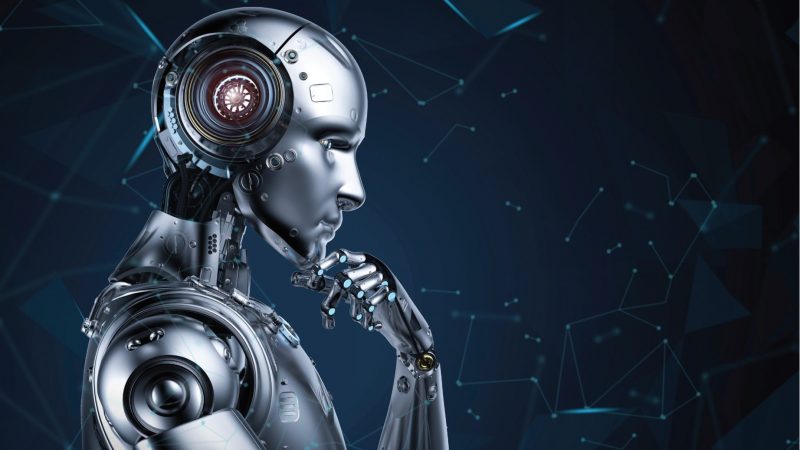
Artificial Intelligence (AI) in healthcare refers to the use of advanced technologies and algorithms to analyze vast amounts of medical data, assist healthcare providers in making informed decisions, and ultimately improve patient outcomes. The scope of AI encompasses multiple technologies such as machine learning, deep learning, natural language processing, and computer vision. In healthcare, AI is employed for tasks such as disease diagnosis, patient outcome prediction, development of personalized treatment plans, and streamlining administrative processes. By utilizing AI, healthcare providers can make more accurate diagnoses, provide superior care, and enhance patient outcomes.
Benefits of AI in Healthcare
Artificial Intelligence (AI) has become a game-changer in the healthcare industry, bringing several benefits such as improved patient outcomes, enhanced efficiency in diagnosis and treatment, reduced costs, improved access to healthcare services, and accelerated speed and accuracy of medical research.
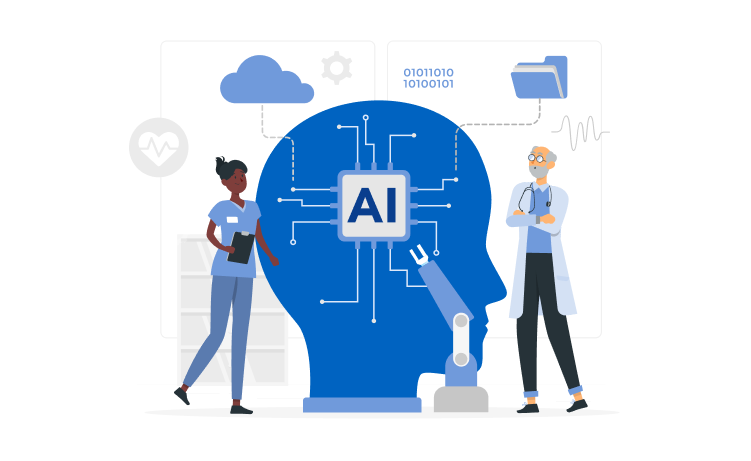
Improved Patient Outcomes
With AI’s ability to analyze massive amounts of medical data, healthcare providers are able to make more informed decisions, leading to better patient outcomes. For instance, AI algorithms can predict patient outcomes and aid in the development of personalized treatment plans.
Increased Efficiency in Diagnosis and Treatment
AI boosts efficiency in diagnosis and treatment by automating administrative tasks, improving diagnosis accuracy through data analysis, creating personalized treatment plans, providing real-time decision support, and streamlining processes. This leads to better patient care, reduced costs, and improved overall efficiency in the healthcare system.
Reduced Costs and Improved Access to Healthcare Services
By streamlining processes and increasing efficiency, AI can reduce healthcare costs while improving access to healthcare services in rural and underserved areas.
Accelerated Speed and Accuracy of Medical Research
AI can also be utilized in medical research to analyze massive amounts of medical data and accelerate the discovery of new treatments and cures. AI algorithms can identify patterns in medical data that are not easily detectable by humans.
Applications of AI in Healthcare
Artificial Intelligence (AI) has several applications in the healthcare industry. These applications of AI in healthcare demonstrate its potential to revolutionize the way we approach healthcare, improving patient outcomes and increasing efficiency and access to care.
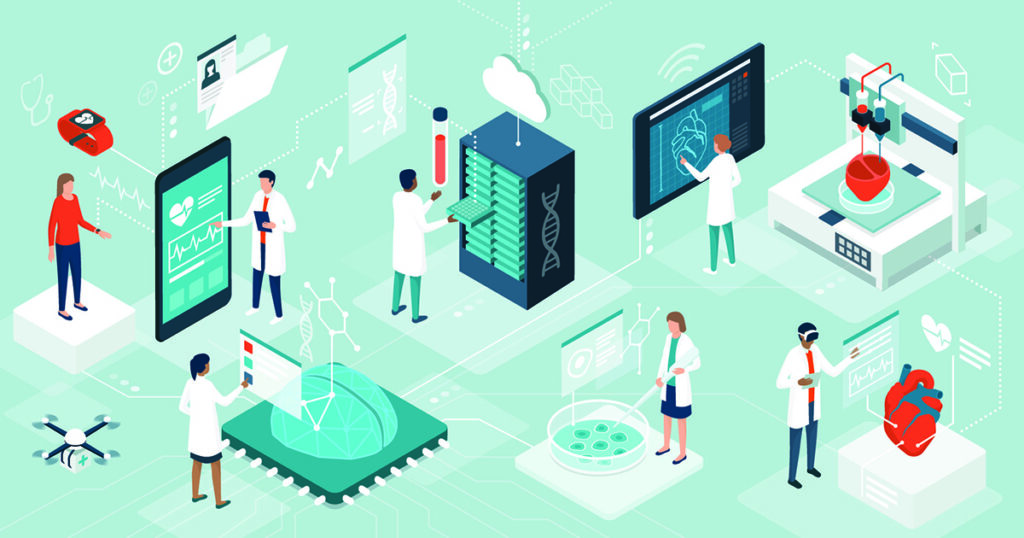
Diagnostic tools
AI algorithms can analyze vast amounts of medical data, such as imaging and patient histories, to assist healthcare providers in making more accurate diagnoses. This can lead to earlier diagnoses and more effective treatments.
Personalized medicine
AI can analyze medical data to predict patient outcomes and assist in the development of personalized treatment plans. This can lead to improved patient outcomes and reduced treatment time.
Electronic Health Records (EHRs)
AI can automate the process of updating and organizing electronic health records, reducing the burden on healthcare providers and improving patient data accessibility.
Telemedicine and Remote Monitoring
AI can assist in remote monitoring of patients, reducing the need for in-person visits and improving access to care, especially in rural or underserved areas. AI algorithms can also assist in telemedicine consultations, providing real-time decision support to healthcare providers.
Challenges of AI in Healthcare
The integration of AI in healthcare has the potential to bring numerous benefits, but also faces various challenges. These challenges include issues related to privacy, security, ethical considerations, and the need for training and education. Understanding and addressing these challenges is crucial for the successful implementation of AI in healthcare.
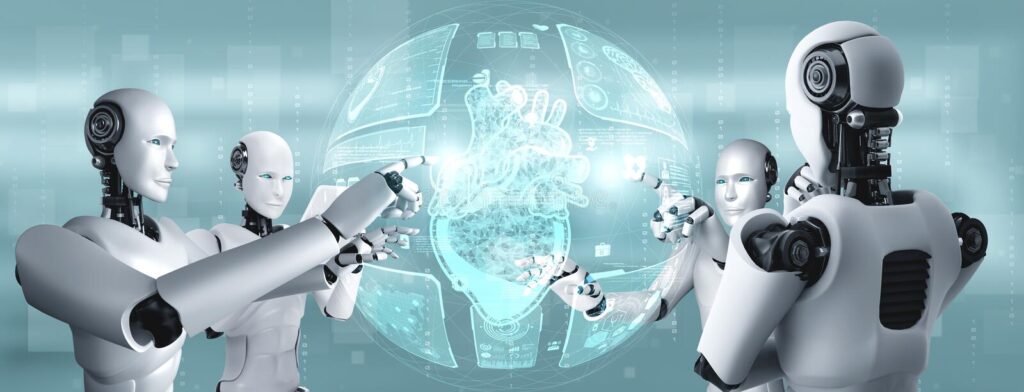
Data Privacy and Security
Data privacy and security are crucial for the successful implementation of AI in healthcare. With sensitive patient information at stake, it’s essential to ensure secure storage and usage of this data. The integration of AI in the healthcare industry brings new challenges, including potential data breaches and unauthorized access. To address these challenges, privacy-protecting technologies and secure infrastructure must be developed and maintained, making data privacy and security in AI healthcare a top priority.
Integration with Existing Healthcare Systems
Integrating AI with existing healthcare systems is crucial but can also pose a challenge. Efforts must be made to ensure seamless integration with electronic health records and other systems.
Bias and Lack of Representation
Bias and lack of representation in AI algorithms can result in unequal and unfair treatment of certain patient populations. It is important to address these issues by incorporating diverse data sets and creating unbiased algorithms to ensure fair and accurate decision making.
Ethical and Legal Concerns
Ethical and legal concerns are also raised with the increasing use of AI in healthcare. Issues such as liability and accountability, informed consent, and patient autonomy need to be carefully considered and addressed to ensure that AI is used ethically and responsibly in the healthcare industry.
Future of AI in Healthcare
The future of Artificial Intelligence (AI) in healthcare is looking bright and holds great promise for revolutionizing the industry. With advancements in technology and increased investment, AI has the potential to transform the way we approach healthcare and improve patient outcomes. As AI continues to gain traction in healthcare, it is crucial to understand its future applications and implications, including the continued development of cutting-edge diagnostic tools, personalized medicine, and enhanced data privacy and security.
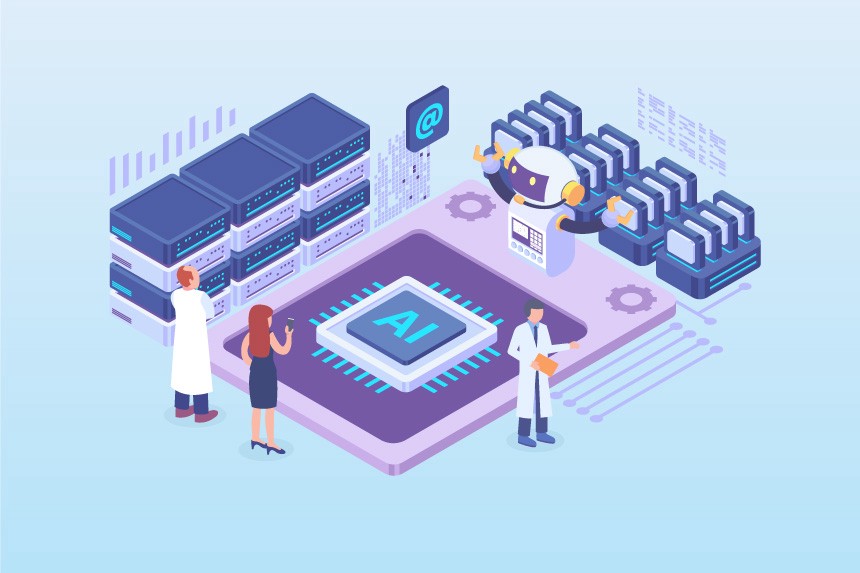
Advancements in AI technology
The future of AI in healthcare is bright, with continuous advancements in AI technology expected. This will enable the development of more sophisticated and effective AI-powered healthcare solutions that will transform the healthcare industry.
Expansion of AI applications in healthcare
With the advancements in AI technology, the applications of AI in healthcare are expected to expand significantly. This will help improve the quality of care provided to patients and make healthcare more accessible, efficient, and cost-effective.
Challenges to overcome
Despite the potential benefits of AI in healthcare, there are still several challenges that need to be addressed. These include data privacy and security, ethical and legal concerns, and the integration of AI with existing healthcare systems.
Potential impact on the healthcare industry
The future of AI in healthcare has the potential to transform the industry in several ways, from improving patient outcomes to reducing healthcare costs. It will also bring about a new era of personalized medicine, where treatments are tailored to individual patient needs based on vast amounts of data.
Conclusion
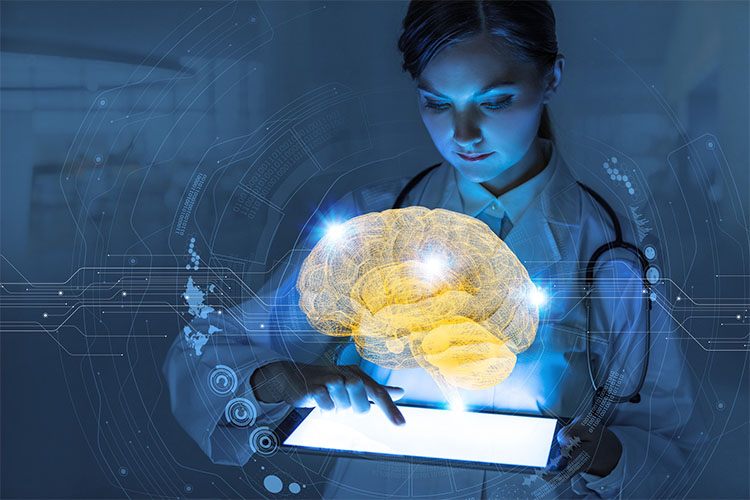
To summarize, Artificial Intelligence has already made a significant impact on the healthcare industry and shows no signs of slowing down. From improving patient outcomes and increasing efficiency in diagnosis and treatment to reducing costs and improving access to healthcare services, the benefits of AI in healthcare are numerous. However, there are also challenges to be addressed such as data privacy and security, integration with existing healthcare systems, bias and lack of representation, and ethical and legal concerns. Despite the challenges, the future of AI in healthcare looks bright. With advancements in AI technology and the expansion of AI applications in healthcare, we can expect to see even more significant changes and improvements in the industry.
We hope this post was helpful.
Please do let us know if you liked it and where we could improve.
Also Read: Revolutionize your business with the power of Generative AI
Thank You!
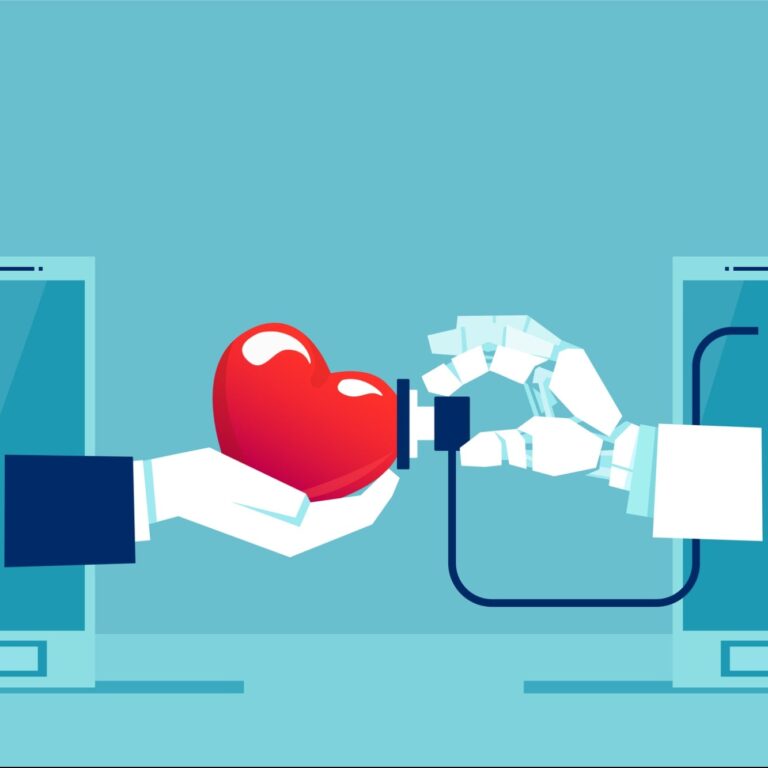
2 thoughts on “The Impact of AI in Healthcare: A Look into the Rise of Intelligent Systems”